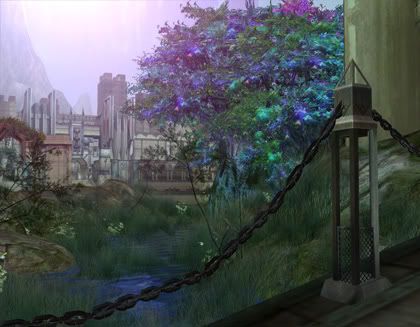
There’s something Justin mentioned yesterday that ties into something that’s been on my mind. In working with games and even brewing the idea for one of my own design, I’ve had to think about the role & use of random chance in a gaming environment.
Mortal beings are fallible. They miss targets. Fat-finger passwords. Slip and fall on wet pavement. These are random occurrences and they happen in everyday life. Someone could hone your senses to razor perfection and gaze into crystal balls to determine their future, but I would bet money that sooner or later something is going to happen to them that they don’t expect. Even those held up as paragons of clean living are not able to avoid the inevitability of random chance.
“Jim Fixx. Remember Jim Fixx, the big, famous jogging guy? Jogged fifteen miles a day, did a jogging book, did a jogging video, and dropped dead of a massive heart attack … when? When he was fuckin’ jogging, that’s when!” – Dr. Denis Leary
Games are a means of escape. Tabletop games are no exception. Be a real estate tycoon, or a globe-spanning general or commander of a massive fleet. Still, games like Monopoly, Risk and Battleship have elements of random chance. Unless the other player’s psychic, nobody can predict where the pegs will fall in the latter example. Role-playing games take it a step further by using some means – dice, most commonly – to determine the role random chance plays in a given activity.
Now, a lot of factors can come into play to make something more or less likely to succeed. A long time spent training will lend bonuses to an attack roll, while magical armor or supernatural instincts to dodge incoming blows may impose penalties. An archer might find their arrow buffeted by a gust of wind, and a wizard might accidentally mispronounce a word in their incantation or get interrupted by somebody taking a swing at them. All very understandable. But what about non-combat situations?
Some tests we take when we’re young are, rather than being graded on a scale, exist only as pass/fail examinations. You either succeed or you don’t. There are arguments that non-combat situations in gaming should be the same way. You either craft an item, or you don’t. You pick a flower or you ignore it. I mean, how hard is it to mess up gathering a herb or getting a bit of ore out of a rock?
On the other hand, there’s the chance that a sample gathered is less useful than it might have appeared. Maybe you’ll measure once and cut twice instead of the other way around – it happens.
The point I’m driving towards is there should be some element of random chance involved, but it’s entirely possible to have too much of it, like Aion’s random chance in gathering materials for example. The trick is to strike the right balance between things players should be able to do by rote with little to no chance of failure, and reflecting the reality of random chance.
That’s my opinion, at least.






